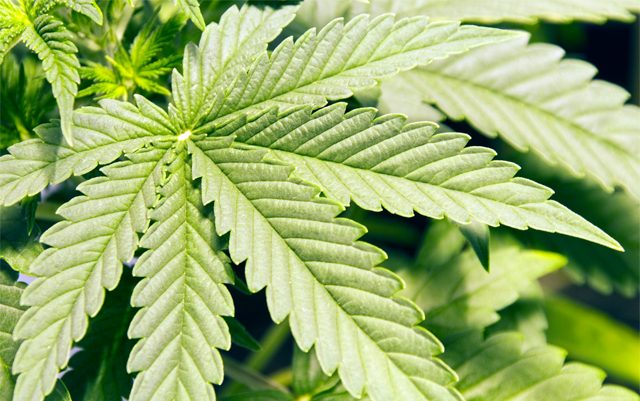For most, eating is a really pleasurable activity. Humans are evolved to experience euphoria when we eat something that we like. Yet, some people suffer fear and anxiety if they eat food. This may sound weird, but it’s true.
Patients suffering with anorexia nervosa feel terribly anxious just at the sight of food. They tend to try to reduce their anxiety by completely avoiding food. Despite their best efforts, however, they cannot take their minds off of food, as our brain is overtly wired with food thoughts.
After all, eating is a basic biological need to survive, and our brain gives the pleasure (reward pathway) if we eat. So, if one suffers disconnect between this innate pleasure and eating, it is really a matter of concern.
Anorexia nervosa is a psychiatric disorder characterized by abnormal food restriction, poor eating habits with self-inflicted weight loss and associated lack of self-esteem. Most of the patients suffer anxiety, obsessive compulsive disorder and depression. Anorexia nervosa occurs mostly in adolescent girls, but also in adults and males. Medical experts believe anorexia nervosa and bulimia nervosa occur due to the imbalance of certain brain chemicals, which influence the endocannabinoid system associated neurotransmitters.
Most of these patients never seek medical help, maybe because they suffer shame and/or guilt. Depending on the clinical symptoms, anorexia nervosa is usually treated with nutritional therapy, anti-depressant drugs and cognitive behavioral therapy. In the long run, patients have to suffer the severe side effects of antidepressant drugs. Anything that has the potential to safely treat the underlying cause of this psychiatric disorder would be very beneficial.
Endocannabinoids and Eating Disorders
Endocannabinoid system receptors are widely distributed all over the body and have organ-specific physiological roles. The endogenous cannabinoids, such as 2-Arachidonyl-glycerol (2AG) and anandamide, stimulate CB1 and CB2 receptors and help the body to function normally in response to metabolic requirements and changes. Endocannabinoids play a key role in the regulation of appetite and body weight by acting at the brain’s CB1 receptors. These receptors are associated with ingestive behaviors, stimulation of appetite and regulation of feedback signals associated with appetite.
The main brain structures, such as hypothalamic nuclei and nucleus accumbens, are sensitive to endocannabinoid action, and the chemical activity varies greatly depending on nutritional status and feeding behaviors. Endocannabinoids increase eating motivation via the reward pathway, and also by pleasure induction after food ingestion. Additionally, endocannabinoids can modulate energy metabolism and storage. Nucleus accumbens is also associated with mood perceptions and memory.
Based on this evidence, we have enough information to understand that the body’s endocannabinoid system has mood-altering abilities and also influences one’s mood in response to food. Anorexia nervosa patients tend to suffer from under-active endocannabinoid systems in which the pleasure of eating might be blunted. As anorexia nervosa pathogenesis involves nucleus accumbens and reward pathway neurochemicals, the onset of mood disorders are inevitable.
Now it all makes sense – the basis of treating eating disorders, weight regulation and obesity should be focused on endocannabinoid targeting. Additionally, the mood disorders associated with eating disorders must be treated accordingly.
Phytocannabinoids can stimulate both CB1 and CB2 receptors and help us to maintain optimal feeding behavior, energy metabolism and body weight.
It has been shown that THC can naturally stimulate CB1 receptors responsible for taste and smell with the concomitant induction of hunger and dopamine levels. Meaning, THC stimulates certain brain areas that provide euphoric reward pleasure as a response to food eating. By this way, one can feel eating as a pleasurable task that relieves depression and anxiety.
This is why you’re getting the munchies after smoking pot!
These benefits of cannabinoids could help anorexia nervosa patients to relieve mood problems, while eating and gaining weight in a healthy way.
THC also targets anandamide, which is one of the members of the group of lipid mediators (fatty acid ethanolamides). These lipid mediators are involved in the regulation of eating and body weight. In experimental animals, anandamide promotes overeating behavior by the activation of cannabinoid receptors. This specific property could be exploited as a therapeutic option to treat anorexia nervosa and body weight disorders.
Not just anorexia nervosa, cannabis has therapeutic ability to treat co-existing mood disorders including anxiety and depression by influencing the emotional processing in the higher centre.
Clinical Trial Evidence
Cannabinoids improve eating behaviors by influencing the brain and intestinal system. Although several studies have demonstrated the orexigenic properties of cannabinoids, the number of human clinical trials on anorexia nervosa treatment is not up to the mark.
Still, dronabinol has been approved for treatment of anorexia associated weight loss (cachexia) based on clinical trials. I’m sure these patients might experience better caloric intake and weight gain if they use medical marijuana as an appetizer.
For the first time, a 3 year study has confirmed that THC may help anorexia nervosa sufferers to gain weight without causing significant side effects. The study reported small but significant improvement in weight gain among anorexia nervosa patients. While cannabis naturally increases appetite, this study has confirmed the efficacy of synthetic THC in the treatment of eating disorders.
The smaller sample size and the THC used, which was a synthetic version (dronabinol), are the limitations of this study. We are well aware of the differences between synthetic versions of THC and natural cannabis. In cannabis, some of the undesirable effects of THC are blunted by CBD, which is unlikely in synthetic versions of THC. Mother Nature nurtures us better than anything else on this planet!
One radiological study on bulimic and anorexic patients concluded that global CB1R upregulation in anorexic patients is a possible, prolonged compensatory mechanism of a dysfunctional ECS in anorexia patients. A similar pattern of CB1R dysfunction was observed in the insular cortex of anorexic and bulimic patients. The insula is a regulatory center for body perception, gustatory information, reward and emotion processing. The research team employed positron emission tomography (PET imaging) to examine brain regions in healthy women and gender-matched eating disorder patients.
For anorexia nervosa patients, a case of the munchies can do wonders; but this is ruinous for bulimia patients. Clearly, cannabis is not a magic bullet for all eating disorders, despite the fact that most of these patients suffer depression and anxiety as co-morbidity. For anorexia nervosa patients with or without anxiety or depression, cannabis works great. Just one puff of cannabis is enough to effectively stimulate appetite. Make sure to take regular breaks from weed use to avoid causing your body’s dependence on weed to make you hungry.
Cannabis use faces heavy resistance when it comes to psychiatric disorder treatment, including anorexia nervosa. As more countries embrace and concede the medicinal benefits of cannabis, the therapeutic potential will be recognized and old stigmas will erode.







I hadn’t heard of cannabis being used in treatment of anorexia, but it does make sense in the way of stimulating appetite. Very informative, thanks for sharing!